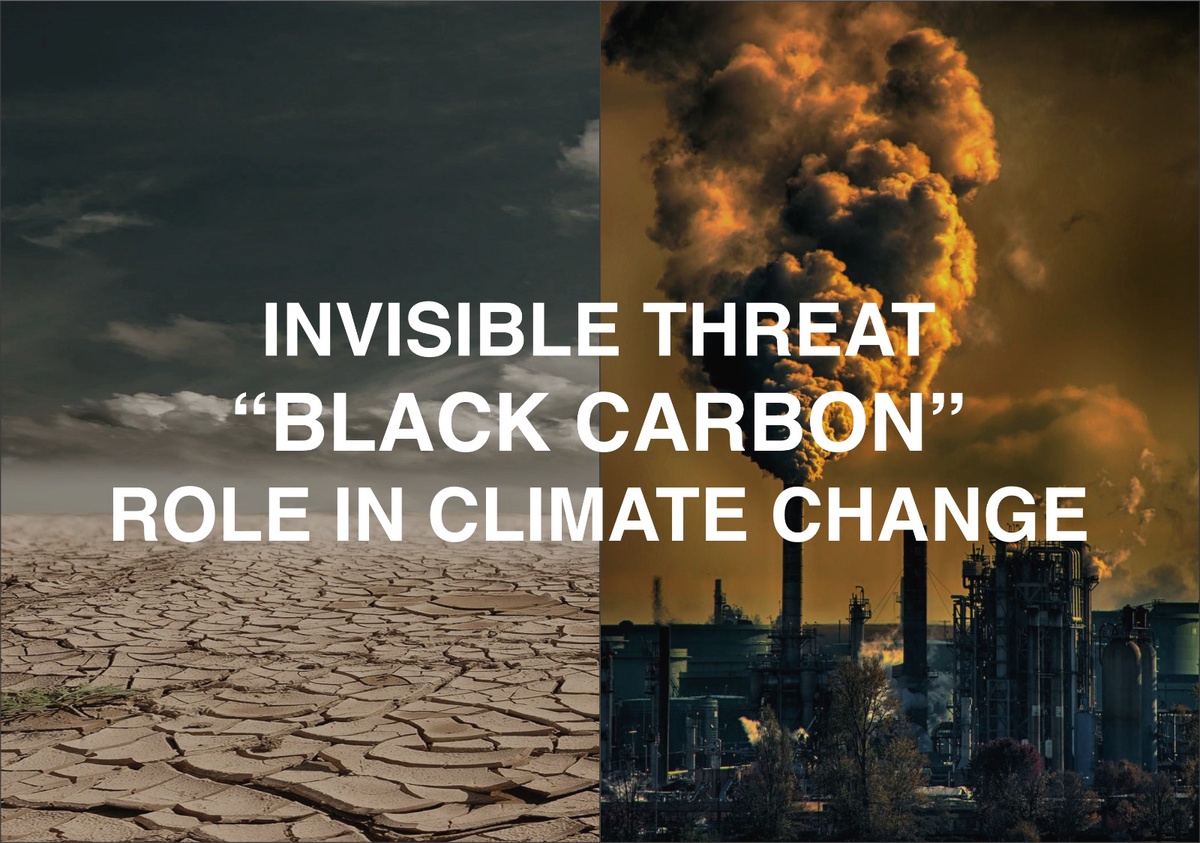Is Climate Change Real or a Myth?
The average global temperature and precipitation over the long term may alter owing to natural phenomena, human activity, or both. It can also be used to describe changes in extreme weather conditions like storms and droughts brought on by the emission of Greenhouse Gases (GHGs) into the atmosphere, which trap heat and produce a global warming of the globe. Throughout the past century, there has been an increase in global temperatures, which has altered global weather patterns and habitats. There is general agreement that there is human-caused climate change and that it is having negative effects on the environment.
What is Black Carbon?
When fossil fuels are burned, a byproduct known as black carbon is produced, which contributes to air pollution. This pollutant is made up of minuscule particles and molecules that may both absorb and reflect sunlight. So, as black carbon behaves as a blanket around the Earth’s atmosphere and retains heat, it can have a warming effect on the atmosphere.
Black carbon is made up of tiny, light particles that are easily carried through the atmosphere and incorporated into clouds. Black carbon particles in clouds reflect incoming sunlight back into space, cooling the Earth’s surface, which has a significant impact on climate change. Additionally, because black carbon traps heat, temperatures in those areas are more likely to increase when such filthy clouds develop close to glaciers or ice sheets. As a result, one of the major causes of global warming continues to be carbon pollution.
Danger of Black Carbon
A significant factor in climate change and global warming is black carbon. It has been demonstrated that this widespread pollutant, which is produced when fossil fuels and other sources are burned, has a significant impact on world temperatures.
Combating black carbon, one of the worst air pollutants, is essential to reducing the effects of climate change. It’s also a problem that needs to be solved on a local as well as a global scale, starting with a decrease in the use of fossil fuels and an increase in the use of sustainable energy sources, as well as a decrease in small-scale burning habits and an advancement in cookstove technology in developing nations. Understanding the origins of black carbon pollution is the first step towards reducing them.
What are the Sources of Black Carbon Pollution?
Large-scale industry, such as factories, power plants, and automobiles; burning of organic matter, like biomass burning and waste incineration; home and business heating systems; cooking stoves used in developing nations; and gas flaring from petroleum production are just a few of the sources of black carbon pollution. The main causes of this kind of air pollution are burning biofuels and fossil fuels, both of which need to be lessened in order to lessen the consequences of climate change.
What Effects Does Black Carbon Have on Global Temperature?
Black carbon is one of the most reactive pollutants causing climate change because it absorbs a large amount of solar energy, warming the atmosphere and enclosing the planet in a “blanket” of heat. The warming effect can have a substantial effect on global temperatures, raising them and making weather patterns more volatile. Moreover, black carbon pollution can lessen snowfall, mess with precipitation patterns, and hasten the loss of Arctic sea ice, all of which have significant effects on global ecosystems.
Black carbon is frequently 200 times more powerful at trapping heat than conventional greenhouse gases like carbon dioxide when it builds up in the atmosphere. Some of the Sun’s energy is prevented from being reflected into space and is instead trapped in the atmosphere as air pollution surrounds Earth and forms an unseen barrier. Global temperatures are dramatically impacted by this, driving them to rise more quickly and increasing the instability of weather patterns.
What Is Being Done to Reduce or Mitigate the Effects of Black Carbon?
Reducing emissions from sources including diesel engines, off-road vehicles, burning biomass, and other harmful practices is crucial. Black carbon absorbers, which are tools for gathering soot and transforming it into a benign substance, are also used in attempts to capture and store black carbon. Also, researchers and decision-makers are working to improve current technology like boilers and charcoal grills, which produce huge volumes of black carbon particles, or to lessen the absorbency of black carbon. Humans can reduce the quantity of black carbon pollution discharged into the atmosphere by creating alternatives to fossil fuels like enhanced biofuels or hydrogen technology. Improved energy efficiency, smarter urban planning, cleaner cooking fuels and practices, as well as improved transportation networks, are just a few ways to reduce black carbon emissions.
How Can Individuals Help Combat Black Carbon Pollution?
There are various things a person can do to lessen black carbon pollution. On a personal level, you may significantly minimize your carbon footprint by choosing to use less fuel-based transportation and instead go biking, walking, or taking public transportation. Also, it’s critical to minimize actions that could ignite fires. Last but not least, buying energy-efficient home appliances can also reduce the amount of black carbon emissions you produce.
Black carbon pollution is largely caused by the cars we drive and the amount of fuel we consume. Limiting the quantity of black carbon discharged into the atmosphere can be achieved by switching to more fuel-efficient automobiles and using less electricity in our houses. One of the most important strategies for halting climate change brought on by emissions of black carbon is to promote awareness among individuals of their individual contributions to air pollution.


No comments yet